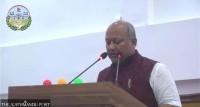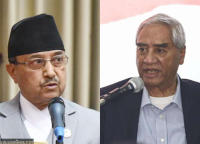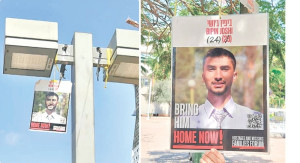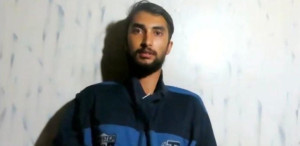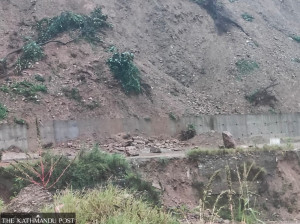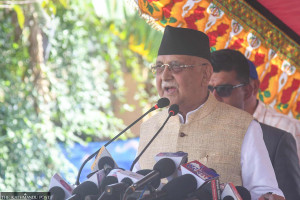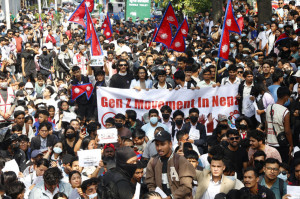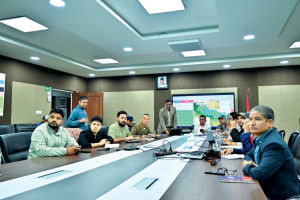National
Extrajudicial killings and the wait for justice
Unlawful executions by police, especially in the Tarai, have continued despite rights organisations including the United Nations calling on Nepal to act to stop them.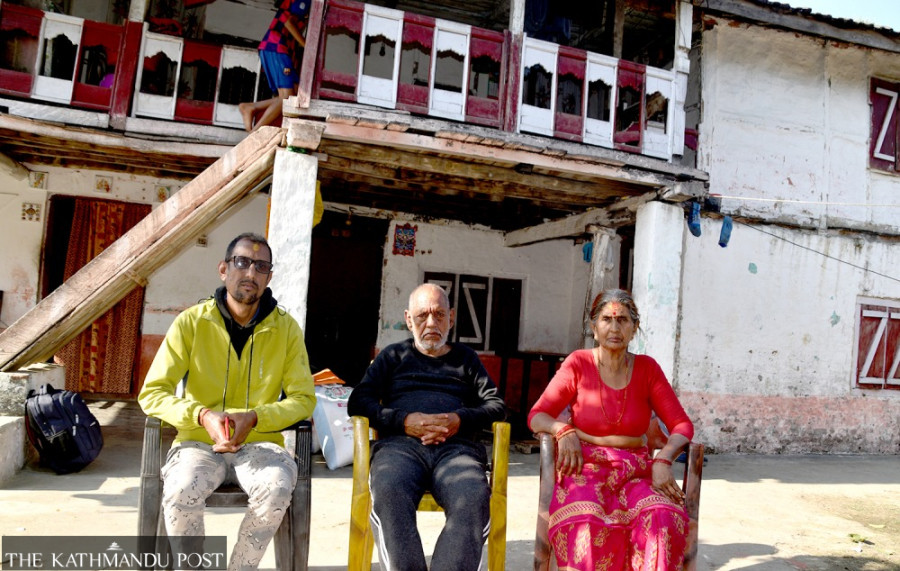
Tufan Neupane
On June 20, 2019, Kumar Paudel, the Sarlahi district in-charge of the Nepal Communist Party led by Netra Bikram Chand, was killed in police action.
The government had imposed a ban on the Chand-led party’s activities following twin blasts in the Valley. One person had died in the first blast in Nakkhu, Lalitpur.
Police claimed that Paudel was killed in “an exchange of fire” after a group of four motorcycle-borne men attacked a police patrol.
The then home minister, Ram Bahadur Thapa, had also reiterated police claims regarding the circumstances of Paudel’s death before the House of Representatives and the parliamentary State Affairs Committee.
The National Human Rights Commission, however, in its investigation launched after complaints from family members, found that Paudel died under suspicious circumstances and concluded that he had been killed extrajudicially.
“Our investigation has shown that the government claim wasn’t right. Paudel was killed after his arrest,” Bed Bhattarai, secretary at the commission, told the Post in October 2019.
It has been more than two years since Paudel was killed, but justice continues to elude his family, which has been running from pillar to post.
“After our son died, we went to the District Police Office, Malangawa to file a complaint, but they refused. We tried to approach the District Government Attorney Office via post. But they did not heed us. And we filed an application at the Supreme Court, which then ordered an investigation,” said Durga Devi, Paudel’s mother, from Dharahara of Bagmati Ward 2 in Sarlahi.
On September 28, a division bench of justices Anil Kumar Sinha and Hari Phuyal directed the Sarlahi District Police Office to register a complaint after Paudel's mother Durga Devi moved the court claiming that the district police had repeatedly refused to register her complaint while the attorney’s office didn’t help.
Accordingly, on October 6, a complaint was registered at the District Police Office, Sarlahi.
“But the investigation has not started yet,” Durga Devi told the Post. “We have heard nothing from any agency.”
As per the existing legal provisions, it is the primary duty of the police to take up any criminal complaint and immediately launch an investigation. If the police refuse to register a complaint, the attorney office should direct the police office to register it.
In Paudel’s case, the complaint was registered only after the Supreme Court’s intervention. But no progress as yet exposes how a fair investigation and justice become a chimaera in Nepal when “a crime” is committed with the involvement of security personnel.
In a report made public on October 21, 2019, the National Human Rights Commission said that police claims that they had to open fire in self-defence could not be verified.
“Police failed to carry out a fair investigation. Both crime scene and autopsy reports were flawed even from the medico-legal point of view,” the commission concluded.
An investigation by the commission had implicated Inspector Krishnadev Prasad Sah and constables Binod Sah and Satya Narayan Mishra in Paudel’s death. The commission had also prescribed departmental action against inspector Kiran Neupane and sub-inspector Surya Kumar Karki for furnishing false reports in the case. It had also asked the government to issue a warning to Dr Birendra Kumar Mandal of the District Hospital, Sarlahi for failing to follow the minimum procedure while conducting an autopsy.
“We had thought investigations would start and cases be filed against those implicated by the National Human Rights Commission. But nothing happened and I don’t think the government will do anything,” said Khilakraj, Paudel’s father. “For poor people like us, there is no justice in this country.”
While Paudel’s family waited for justice, the government swept the commission’s recommendations under the rug. Instead, the Office of the Prime Minister and Council of Ministers sought a review of the commission’s recommendations.
On October 14, 2020, the commission responded, saying “there was no basis and reason for reviewing the recommendations.”
Thereafter, the government did not implement the recommendations.
It has been more than three months since the complaint was registered, but the police have not summoned anyone implicated for questioning. Nor have police issued any arrest warrant against those who have been named in the complaint.
Deputy Superintendent Madhav Prasad Budhathoki, spokesperson for the District Police Office, Sarlahi, however, claimed that “the investigation is underway”. In the complaint, Durga Devi has made Krishna Bahadur Raut, then chief district officer of Sarlahi; Superintendent Gopal Bhattarai, then Sarlahi police chief; Deputy Inspector General Hari Bahadur Pal, then police chief of Province 2, Inspector Neupane; Sub-inspector Surya Kumar Karki and Dr Mandal the defendants. Constables Mishra and Shah from Police Headquarters, Inspector Krishnadev Prasad Shah and Bagmati Municipality Mayor Bharat Kumar Thapa also have been named the defendants.
The District Government Attorney Office says since the investigation into the “extrajudicial killing” has not been completed, it has no role in the entire process.
“The case will come to us only after the investigation is over,” said District Attorney Riddhinath Niraula.
***
Kumar Paudel’s background was also not free of controversy. Paudel, who was working as an assistant technician at a village development committee, joined Chure Bhawar Party after the second people’s movement in 2006. He later became the chair of the party’s Sarlahi chapter. After leading a movement to ensure land for the squatters, he was working as the district in-charge of the Chand-led Nepal Communist Party, which was at that time underground. As many as six cases of arson, blasts and organised crime were pressed against him after the government in March 2019 imposed a ban on the activities of the Chand-led party and branded it a criminal outfit.
Had Poudel been arrested and found guilty, he would have faced punishment as per the existing laws. Since he was killed in police action, the charges against them could be proved in a court of law. Nor could the accountability of a person involved in illegal activities be established.
***
Kumar Paudel’s killing, however, is not the first extrajudicial killing in Nepal.
Extrajudicial killings were rife when the Maoist insurgency was at its peak, and such incidents continued even after the 2006 peace deal, especially in the Tarai-Madhes regions.
Police killings in custody after arresting people on charge of their associations with armed outfits active in the Tarai region have also been well-documented.
In its summary of concerns titled “Investigating Allegations of Extra-Judicial Killings in the Tarai” made public in July 2010, the United Nations Office of the High Commissioner on Human Rights stated that many allegations of extra-judicial killing largely remain uninvestigated.
Between January 2008 and June 2010, the UN rights office received reports of 39 incidents, resulting in 57 deaths, which involved credible allegations of the unlawful use of lethal force, the report said.
There is sufficient evidence to suggest that in many cases of “encounter killings,” police operations could have led to a lawful arrest, rather than a death, the UN rights body said.
The investigation had found use of lethal force and killings took place in an “encounter” with armed criminal groups during routine police operations.
The UN rights office in its report identified a number of factors contributing to the failure to properly investigate allegations of unlawful killings—political and public pressure upon the police, lack of access to justice for victims, an absence of credible internal accountability mechanisms within security and law enforcement structures, as well as gaps and weaknesses in the existing legal framework.
In an application filed on May 5, 2011, by Sunil Ranjan Singh, an advocate who is currently a member of the Commission on Investigation of Enforced Disappeared Persons, and Dipendra Jha, attorney general of Province 2, at the Supreme Court, they argued that Nepal Police’s structure at the local level is “unwilling, incompetent and biased” when it comes to investigating such “extra-judicial killings”.
More than a decade after it produced its summary of concerns about allegations of unlawful killings, the United Nations Office of the High Commissioner on Human Rights has continued to draw attention of the government of Nepal to repetition of such incidents.
On October 28, 2019, three special rapporteurs on human rights wrote to the Ministry of Foreign Affairs, saying they had received concerning allegations of excessive use of force and extrajudicial executions by police officers in Tarai, and that incidents of use of force and weapons by Nepal’s security forces had continued, leading to deaths.
They had also sought to know the facts behind the deaths of Saroj Narayan Singh of Sarlahi and Dipendra Chaudhary of Saptari. They also expressed their regret over not receiving any response to their earlier letter sent on June 7, 2017, about the extrajudicial killings in Nepal that took place between 2013 and 2017.
Police are also facing charges of killing Chaudhary on January 23, 2019, in custody, five months before Paudel was killed. Police claimed that Chaudhary was a member of an armed outfit and that he was killed in an encounter. Chaudhary, then 27, was working as a driver in India.
A week after Paudel’s death, Singh died from a police bullet. Singh was among the villagers protesting against illegal sand mine operators after a minor from their village died after falling into a sandpit.
Then home minister Ram Bahadur Thapa had faced criticism for saying in Parliament that Singh died because he was standing on an elevated surface when police fired into the air.
The rapporteurs had mentioned these three incidents in their letter and demanded a fair judicial probe into the killings.
The government on January 3, 2020, responded through Nepal’s Permanent Mission to the United States in Geneva, saying Paudel was involved in terrorist activities and he was killed in an encounter.
“Singh died during the act of maintaining peace and security, and controlling mob/crowd,” said the government. “Similarly, Poudel and Chaudhary died in different incidents in the cross-fire and during self-defence actions taken by the security personnel.” The government said it “assures that there would not be any arbitrary or abusive use of force and firearms by law enforcement officials.”
“If such abusive use of force is found, the GoN will punish those involved, under the prevailing law of Nepal,” it added.
In January this year also, four United Nations special rapporteurs on human rights asked the Nepal government to provide details of investigations and actions taken against perpetrators, if any.
In their written correspondence to the Ministry of Foreign Affairs, the special rapporteurs have mentioned six cases of deaths either in police custody or in police action in a nearly one-year period between October 2019 and August 2020 and sought details of the steps taken towards providing justice to the victims.
“It is reported that police routinely refuse to accept complaints and to register complaints; and when complaints are registered, police and prosecutors routinely delay in carrying out investigations, even when issued orders and legal rulings are made by the Courts of Appeal and Supreme Court,” reads their correspondence.
***
According to the United Nations Special Rapporteur on Extrajudicial, Summary or Arbitrary Executions, an extrajudicial killing may be defined broadly as any killing that violates international human rights or humanitarian law, including “unlawful killings by the police,” “deaths in military or civilian custody,” and “patterns of killings by private individuals which are not adequately investigated and prosecuted by the authorities”
Responding to the petition filed by Singh and Jha, Nepal’s Supreme Court in its verdict on January 6, 2020, said the cases of extrajudicial killing should be dealt with as per the existing law that applies to other cases of murder.
“An extrajudicial killing is considered a crime to be dealt with as per existing criminal law. It doesn’t need to be enlisted in a separate national law. It is a murder. Therefore, there has been a general practice to deal with extrajudicial killing as criminal offence like any other murder cases. And this is the most objective way to look at it,” reads the court’s verdict. “Deaths as a result of an intentional attack or unjustified and excessive use of force by state agencies with the authority to uphold rules and regulations cannot be prosecuted under any other law than criminal law. Otherwise, it would be against the principle of rule of law.”
The Paudel family’s quest for justice, however, has continued till date.
“I cannot travel. If I were to travel from Sarlahi to Kathmandu, I would be dead by the time I reached there,” said Durga Devi, 72. “I am tired of running from pillar to post. But I will continue my fight for justice until my last breath.”
Om Prakash Thakur contributed reporting from Sarlahi.




 17.12°C Kathmandu
17.12°C Kathmandu

